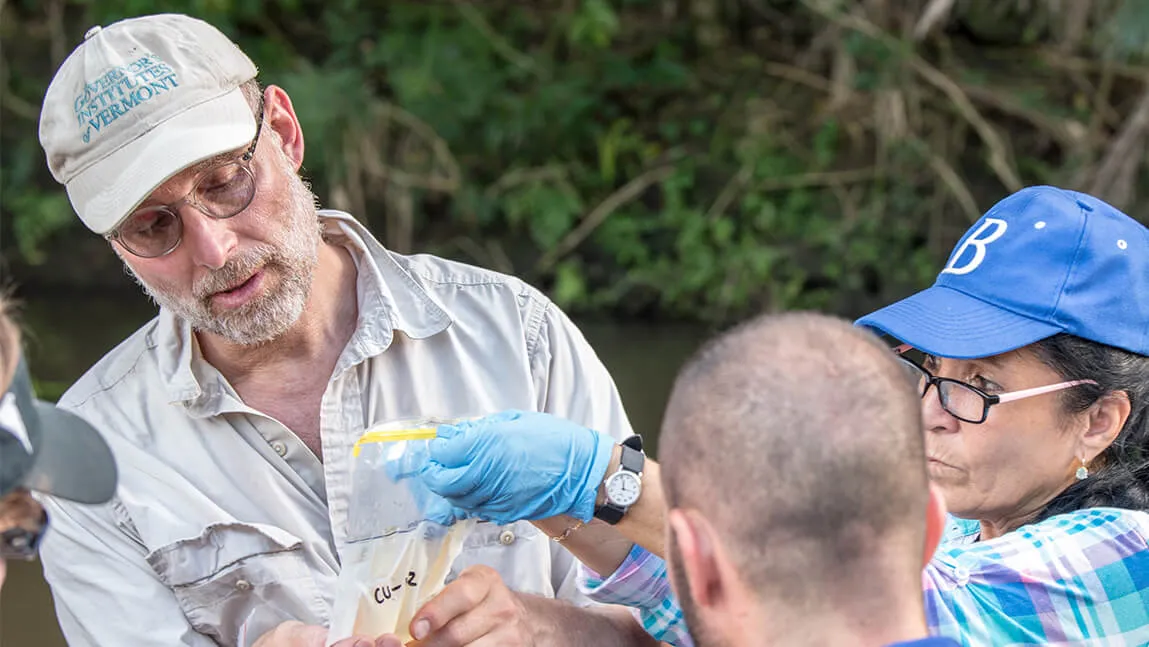Dr. Paul Bierman joined the University of Vermont’s Rubenstein School of Environment and Natural Resources in August 2021. A Professor in the Environmental Sciences Program, he brings more than 35 years of Earth Science expertise to the school.
“We are thrilled to welcome Dr. Bierman to the School and the Environmental Sciences Program," said Rubenstein School Dean Nancy Mathews. "Dr. Bierman’s international reputation as a climate change scientist, particularly his recent discoveries in Greenland, bring dramatic value to the School. He is a collaborative colleague whose expertise in geochemistry, erosion, climate history, and science communication, will enhance our curriculum. Dr. Bierman’s long term focus on diversity in the geosciences aligns closely with the Rubenstein School’s mission of advancing Environmental Justice.”
Paul began teaching at UVM in 1993 in the Department of Geology in the College of Arts and Sciences. During his 28 years at the University, he has overseen the U.S. National Science Foundation Community Cosmogenic Laboratory and the Landscape Change Program; been primary advisor for nine doctoral and 32 master’s students; published two college-level textbooks, 180 refereed papers, 13 book chapters, and been an author on more than 450 abstracts along with his students and collaborators; and conducted research ranging from the tropics to the arctic. Paul’s research has brought over 7 million dollars to UVM from the U.S. National Science Foundation, U.S. Geological Survey, and the Department of Defense. He most recently led research in Greenland that discovered plant life beneath a mile deep layer of ice. That research was the catalyst for a general audience book he’s now writing.
“I am excited to move into the Rubenstein School to further my teaching and research related to human/landscape interaction, science communication, and climate change,” said Paul. “I look forward to collaborating more closely with the school’s breadth of faculty, staff, and students as an embedded member of the Environmental Sciences program. I am eager to contribute my geomorphology, geochemistry, and climate knowledge to the Rubenstein learning community.”
During fall semester 2021, Paul will be teaching Earth Hazards (Geology 007), which is now a part of the Rubenstein School curriculum. The class surveys earth processes and how they affect people and societies, with a significant focus on the inequality of hazard distribution. Paul will also be teaching a graduate-level course on the science of climate change denial (CRN 95076).
Paul earned his PhD in Geology from the University of Washington in 1993. His dissertation research examined the history of granite landscapes over time using geochemical techniques. He received his Master of Science in Geology from the University of Washington and his Bachelor of Arts from Williams College.
